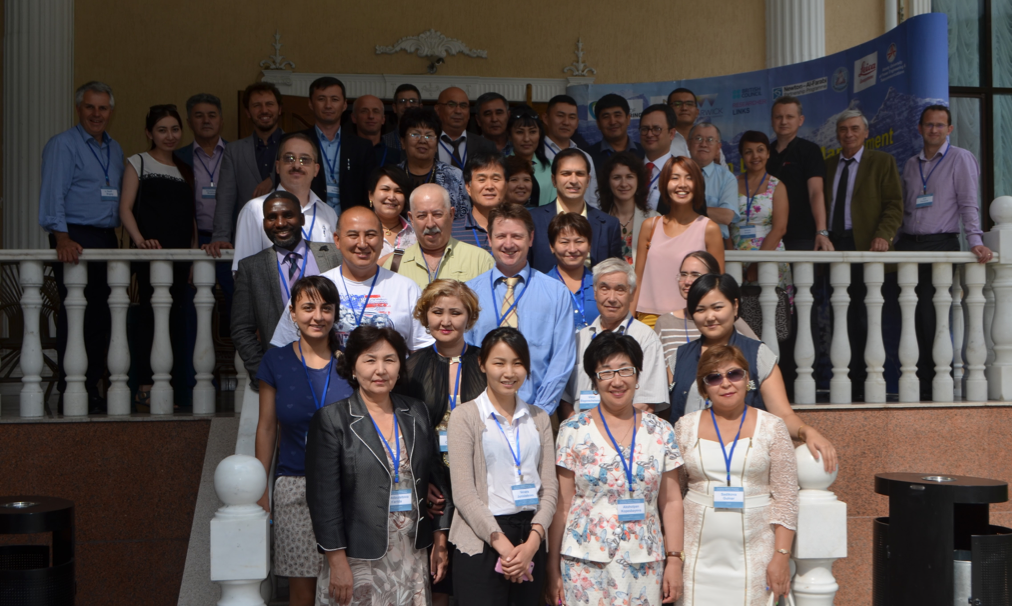DMERF
August 2016
Kazakhstan is prone to a variety of natural disasters including floods and earthquakes, mudflows and landslides. Geological faults, alpine and plain terrain and an extreme climate (a temperature range of -54 to +46 degrees celcius) combine to generate high levels of risk affecting up to 75% of the country’s land area.
A team of twelve business and academic experts from the UK met up with more than twenty delegates from Kazakhstan and Russia to consider the problems and potential solutions. A key partner in the programme was Kazselezashita, the Kazakh Emergency Management organization for landslides. Director Murat Kasenov presented a deep history of recent disasters in the local region, covering the impacts, later mitigation measures and emergency planning and management arrangements. Murat also shared a 30-minute documentary later that day, which brought home the devastation caused by catastrophic mud-slides in Shymbulak and more recently in 2015 in the Kargalinka valley.
The field visit was to see first hand the recovery from a series of mudslides in 2015 in the Kargalinka River. The delegates saw the devastation following the landslide and the cascade effect of the mudslide flood downstream of a preventative dam in place in the valley. The hill top community on the edge of the steep-sided valley is perched on soil and rock that is unstable and the delegates clearly recognized the challenges faced. The valley is now a major site of debris removal and construction of protective concrete channel walls, and in-river flow ‘baffles’ to slow the passage of floods and mud flow down the valley.
Over the 5 days together, both delegations worked hard to share knowledge of local issues, and case studies of both impacts and best practice. The final outcome of the workshop was a number of collaborative proposals to address the key elements the delegates identified as significant barriers to effective management of disasters relating to flood, land and mud slides.
Associate Professor Jonathan Pearson, University of Warwick said, “Feedback from the delegates and the British Council has been excellent and my whole experience of working with ICE blue exceeded my expectations. I couldn’t have delivered this workshop or developed the bid, which we have now submitted, without the support of ICE blue.”

